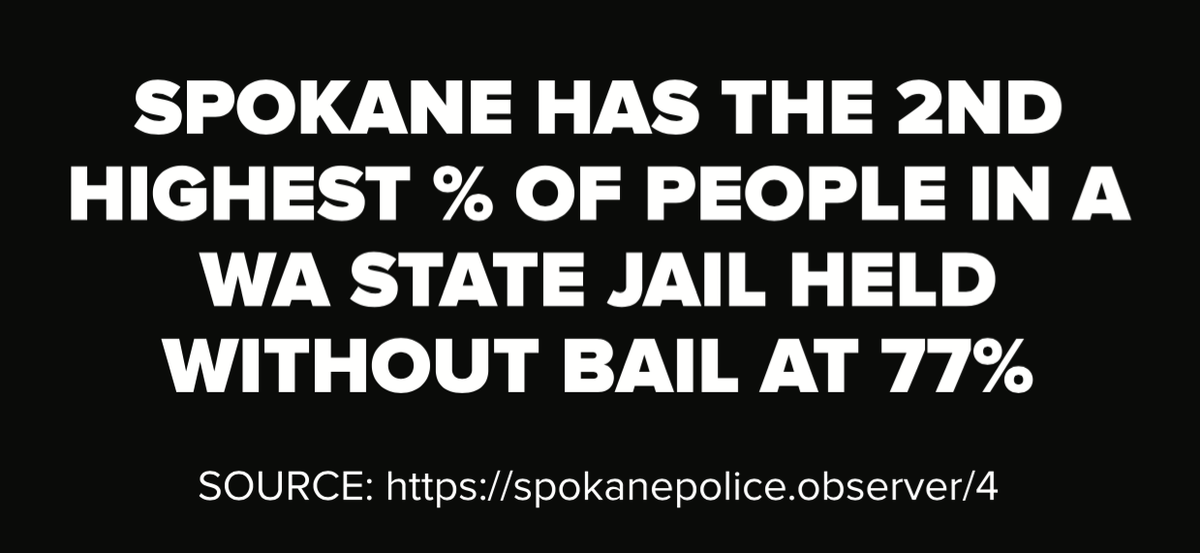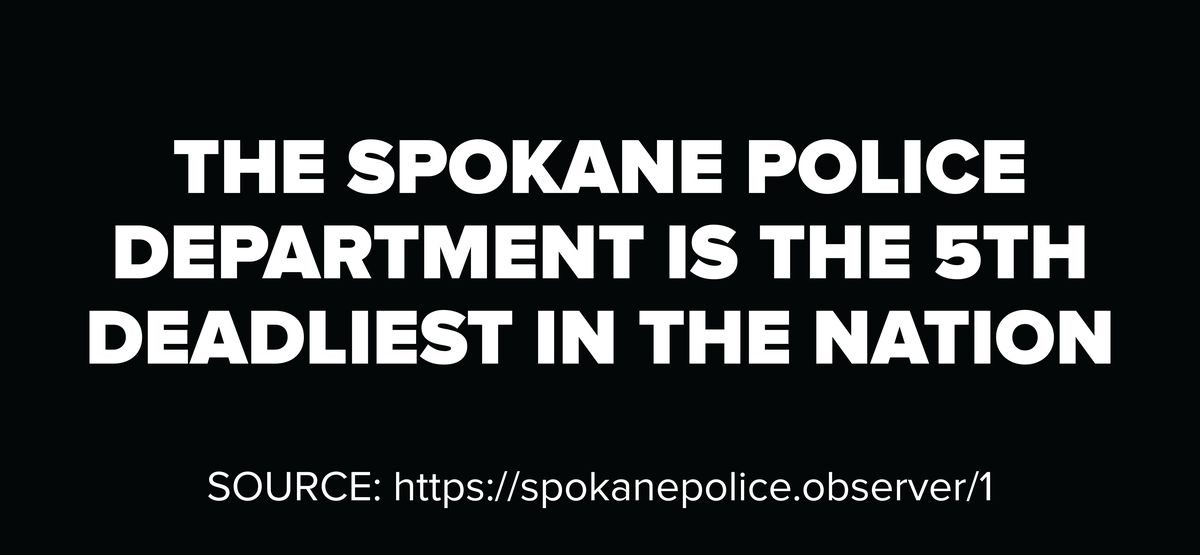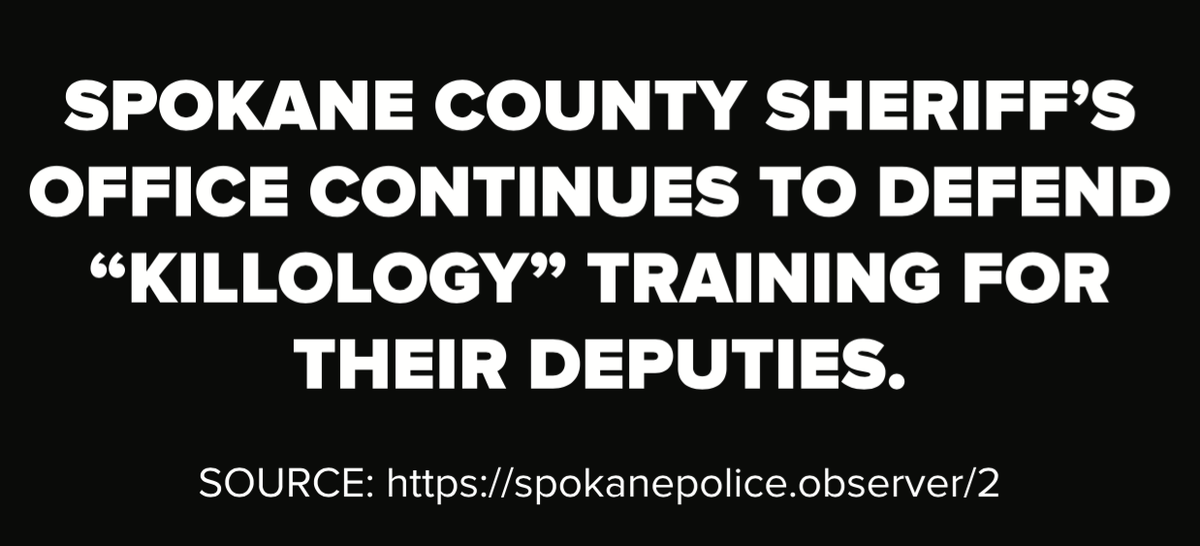Lamar Advertising removes anti-mask billboards, declines to display 3 of 4 ads from anti-racism group
A mock-up of the SCAR billboards that were turned down by Lamar.
Just days after controversial anti-mask billboards went up in Spokane, owners of the billboard company Lamar Advertising removed the messages after receiving feedback from the community.
“It was just a decision we made at a corporate level that the public health risk was just too great to keep it posted,” said Duane Halliday, vice president and general manager of Lamar Spokane.
The decision by Lamar to put the billboards up in the first place upset some members of the group Spokane Community Against Racism (SCAR), which had three of their designs for billboards highlighting police brutality and racial injustice flatly rejected by the advertising company.
As a “space supplier,” Halliday said Lamar reserves the right to decline advertising, which they do on a “case-by-case situation.”
Halliday said it was clear from the response to the John Birch Society billboards that leaving them up was not in the community’s best interest.
“The community was not super happy with that message,” Halliday said. “We try to stay away from anything that is far too offensive to the public. Right now we just felt like the risk to the public was too great.”
When asked why the billboard design was accepted initially, Halliday said it was an issue of free speech.
For Caleb Collier, executive field coordinator for the John Birch Society in 11 Western states, the decision to remove the billboards is “cowardice.”
“I had a contract with them and unfortunately they have decided to violate that,” Collier said. “So I think what this is, honestly, it’s cowardice of those who capitulate to the cancel culture.”
Collier said it’s hypocritical of Lamar to put up billboards for marijuana stores and sex shops that could be considered harmful to the community while removing the John Birch Society billboard.
That “versus a sign that was simply questioning the efficacy of these masks and really pointing to the fact that in all things when the government overreaches that freedom is the cure,” Collier said.
While Collier is disappointed in the decision, he acknowledges removing the billboard was within Lamar’s right.
“They do have this right. I’m not questioning that at all but in my opinion they violated the contract,” Collier said. “If they had an issue with it, then they shouldn’t have allowed it in the first place.”
Recently, Lamar also declined to put up billboards addressing police brutality and systemic racism in Spokane created by the nonprofit SCAR.
The four billboards would have addressed issues like Spokane County Sheriff Ozzie Knezovich’s defense of the controversial “Kill- ology” training, and the fact that Black Spokane residents are five times more likely to be arrested.
“We didn’t turn them all down, but there were a couple that we weren’t totally sure could be backed up by facts,” Halliday said.
Lamar turned down three of the four billboards, saying they would put up one addressing higher arrest rates for Black Spokanites. Each billboard had citation information presented, so viewers could do research after seeing the sign.
Walter Kendricks, founding member of SCAR and pastor at Morning Star Baptist Church, said the nonprofit’s board was disappointed because the billboards were factual. The group was created in 2017 to “reduce the effects of racism in Spokane,” Kendricks said. This year, following the killing of George Floyd, they published the ”Platform for Change – Responding to this Moment,” a series of reforms for local law enforcement and elected officials.
“He turned us down. He did not want to put up the billboards,” Kendricks said. “We know that they’re a private company and they have discretion with what they put up on their billboards.”
Kendricks said Lamar cited a portion of their contract that addresses “moral standards” of the community the billboards are to be placed in. Kendricks said SCAR decided not to move forward with the one billboard Lamar did not reject.
The policy states, “Lamar reserves the right to determine if copy and design are in good taste and within the moral standards of the individual community in which it is to be displayed. Lamar reserves the right to reject or remove any copy either before or after installation, including immediate termination of the contract.”
“We just want to be good corporate partners to everybody here, and we’re part of the community,” Halliday said.
Lamar owns 1,300 billboard faces in Spokane, North Idaho and Central Washington, Halliday said.
For SCAR, the decision to put up the anti-masking billboard caused further frustration at the denial of their signs.
“Well, of course we talk about freedom,” Kendricks said. “We speak on people having the right to express their opinions, but it seems as though with various companies, it seems they suppress a view to the opposite of which they’re espousing.”
The decision to deny SCAR’s billboards just further proves the need for racism to be addressed in Spokane, Kendricks said.
“Personally, do I think there is a tinge of racism in their decision not to put up our billboards? Yes, I do,” Kendricks said.
Moving forward, SCAR said they will continue to push their message out through other venues.



